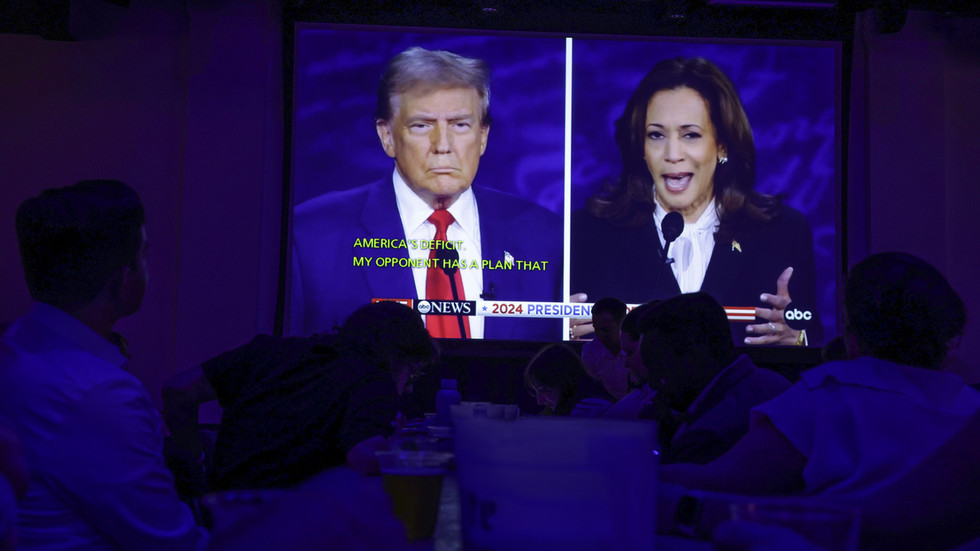Recent surveys indicate a notable decline in support for both Donald Trump and Kamala Harris compared to the sentiments expressed during the 2020 presidential election. Exit polls conducted by Edison Research reveal that Trump’s current approval rating hovers around 45%, which marks a slight drop of one percentage point from four years ago. On the other hand, Kamala Harris is viewed favorably by 47% of respondents, a reduction from the 52% who expressed confidence in Joe Biden during the previous election cycle. This decline in approval ratings highlights a shift in voter sentiment as the upcoming 2024 election approaches, possibly indicating growing dissatisfaction among the electorate.
In terms of specific issues, the surveys indicate that Trump holds an edge over Harris on economic matters, with 51% of voters expressing greater confidence in his ability to handle the economy, as opposed to 47% who favor Harris. Conversely, when it comes to abortion rights, the tables turn, with 51% supporting Harris, while 47% align with Trump. These varying opinions reflect the challenges both candidates face in addressing core voter concerns and present a complex landscape for their respective campaigns as they attempt to appeal to a divided electorate.
The overall sentiment among the American populace appears to be one of discontent, with approximately 70% of respondents describing themselves as “dissatisfied or angry” about the current state of the nation. This sense of dissatisfaction is further underscored by the finding that 45% of voters feel financially worse off than they did four years prior. These perceptions of economic insecurity and societal issues may significantly impact how voters cast their ballots in the upcoming election. The growing unease within the electorate emphasizes the importance for candidates to effectively address these pressing concerns as they campaign for support.
As the 2024 election strategies unfold, the most pressing issues for voters have been identified as the “state of democracy” (34%) and the economy (31%), alongside additional concerns such as abortion (14%), immigration (11%), and foreign policy (4%). This delineation of priorities is crucial for both candidates, as they will likely tailor their messages and policies to resonate with the specific issues that matter most to voters. Understanding these priorities can inform their campaigning strategies and peer into the minds of potential supporters as they push toward Election Day.
Significantly, the Edison Research exit poll indicates that a substantial majority—about 80%—of voters had already made firm decisions regarding their election choices by September. This suggests a relative lack of volatility among the electorate, with only a small proportion of independent, first-time, or “infrequent” voters remaining undecided until the last moment. This trend may influence how campaigns allocate resources and strategize their outreach to voters, highlighting the need for candidates to engage effectively with those who might still be on the fence.
In conclusion, the combination of declining favorability ratings, key issue prioritization, and prevailing dissatisfaction among voters sets the stage for a potentially contentious 2024 election. Both Trump and Harris are compelled to navigate a complex political landscape where public sentiment is increasingly fractured. As they strive to address the widely held concerns that underpin voter sentiment, candidates will need to craft compelling narratives that resonate with the electorate, particularly in addressing economic challenges and the broader implications for democracy in the United States. Ultimately, the capacity to respond to these dynamics could prove pivotal in winning support in the approaching presidential race.

